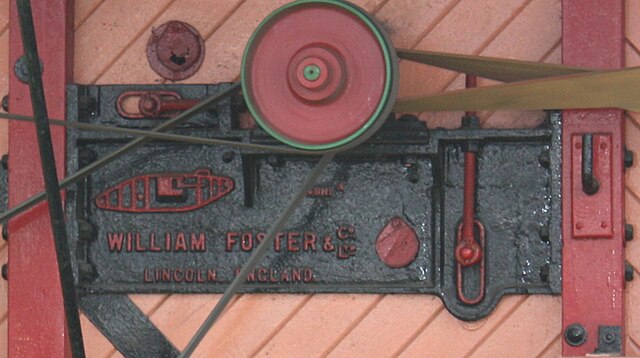William Foster & Co Ltd was an agricultural machinery company based in Lincoln, Lincolnshire, England often called "Fosters of Lincoln." The company can be traced back to 1846, when William Foster purchased a flour mill in Lincoln. William Foster then proceeded to start small scale manufacturing of mill machinery and threshing machinery. The mill was converted to an iron foundry by 1856, thus becoming the original Wellington Foundry. By 1899 the works had moved to the Wellington foundry in New Boultham and the original works were then occupied by William Rainforth. During the First World War Fosters built some of the first tanks for the British Army.
Foster casting on threshing mc with Tank logo cast
Foster's advertisement in 1863 for a Portable Engine
Foster showman's road locomotive "Robin Hood"
Foster-Daimler tractor towing artillery on a trailer built by Fosters, Flanders 1917. Photo by Ernest Brooks.
Lincoln is a cathedral city and district in Lincolnshire, England, of which it is the county town. In the 2021 Census, the Lincoln district had a population of 103,813. The 2021 census gave the urban area of Lincoln, including North Hykeham and Waddington, a recorded population of 127,540.
Clockwise from top left: Lincoln Castle; Steep Hill; Guildhall and Stonebow; St Swithin's Church; and Lincoln Cathedral
Newport Arch, a 3rd-century Roman gate
East Gate, Lincoln Castle
Coat of arms of King James I added in 1617 when the monarch visited the city for nine days








